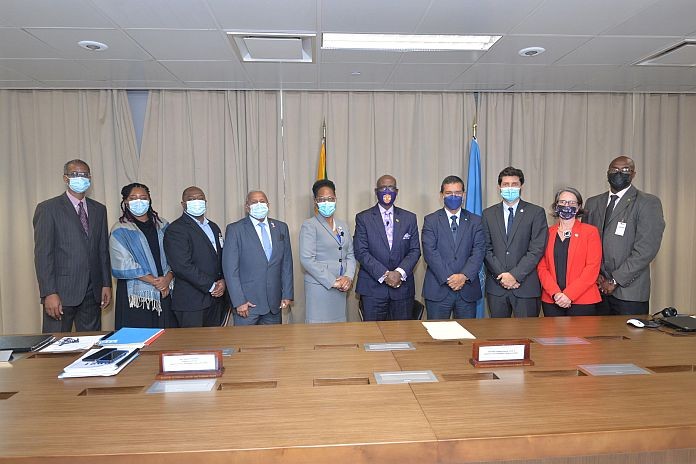KINGSTON, Jamaica – The covid pandemic has brought death and economic destruction to all parts of the globe, underlining why effective action on disaster prevention and management must embrace all sectors of society and involve national and international actors, a conference on risk reduction in the Americas and the Caribbean was told.
Intersectoral coordination, legal frameworks, policies and plans, up-to-date risk information to drive decision making, clear participation mechanisms and integration from global to regional and local levels are all elements of ‘good governance’, a priority for action of the global blueprint on disaster risk reduction, the Sendai Framework.
“Covid has revealed things that we knew before, but which have become even more glaring,” Alan Lavell, associate researcher, Costa Rican branch of the Latin American Social Science Faculty-FLACSO, told the Vll Regional Platform for Disaster Risk Reduction in the Americas and the Caribbean, which is being hosted by Jamaica.
A high-level panel on the fourth and last day of the platform examined the challenges and opportunities to improve governance and intersectoral coordination in a region which is routinely exposed to a wide range of disasters, and which has suffered disproportionately from the ravages of covid.
Although the Sendai Framework specifies the need to strengthen governance in risk management, the issue of pandemics is not yet fully incorporated into the approach, said Ciro Ugarte, health emergencies director, PAHO/WHO. “Covid shows this should be broached without delay by all governments and all disciplines,” he told the session, which was held in virtual format.
Every healthcare emergency has political and social implications. “The bigger the epidemic, the more the need for high-level intervention,” he said. “We have to strengthen good governance and cooperation and promote the full participation of all relevant actors,” he said.
Paula Daza Narbona, public health undersecretary, government of Chile, outlined steps taken there to contain covid, beginning with a declaration of a state of emergency. From the outset, the emphasis was on intersectoral cooperation between ministries and different levels of government. For example, the army was brought in to distribute vaccines, she said. “Health squads” of volunteers were set up in neighbourhoods, schools and workplaces to provide information to the population, she said.
The response to covid in St Vincent and the Grenadines benefited from the existence of a strong and tested disaster management system in the many islands of the Caribbean state, said chief medical officer, Simone Keizer Beache. “We have learned through experience that there is a need to have comprehensive disaster risk reduction integrated into all strategic plans.” The government responded to the health emergency with an economic protection package worth some 3 percent of GDP, helping particularly the young and small and micro-businesses. “The motto is health security is national security,” she said.
Central America and the Dominican Republic quickly realized the need for coordinated action to confront the covid pandemic, including cooperation between health ministries to share information. Claudia Herrera, executive secretary, coordination Center for the Prevention of Disasters in Central America and Dominican Republic ((CEPREDENAC), stressed the need for regional action to complete moves by national governments. She also emphasized the need for early detection and diagnosis of disaster risk.
Sergio Rico, director, national emergency system of the Presidency of the Republic of Uruguay, highlighted the fact that the country had a well-prepared national system designed to protect people and infrastructure. He pointed to the important role played by technology in combatting the pandemic, both in facilitating communication with the population, through such vehicles as Twitter, and by allowing students to keep studying without attending their places of education. “The public has the right to know what is happening,” he said.
As in Uruguay and St Vincent and the Grenadines, Jamaica’s national response to covid was helped by existing policies on disaster risk management, including the Disaster Risk Act of 2015, Wayne Henry, chairman and director-general, planning institute of the government of Jamaica said. He also highlighted the importance of information sharing and cooperation between sectors. “No one entity can do it,” he said.
Wrapping up the session, Bijay Kumar, executive director, Global Network of Civil Society Organizations for Disaster Reduction (GNDR), said that it is important to examine risk from the perspective of local people, those on the hazard frontline. “We need to recognize local capacities and how can incorporate the private sector and civil societies, and work together in a collective process,” he said.
Source(s) United Nations Office for Disaster Risk Reduction – Regional Office for the Americas and the Caribbean





